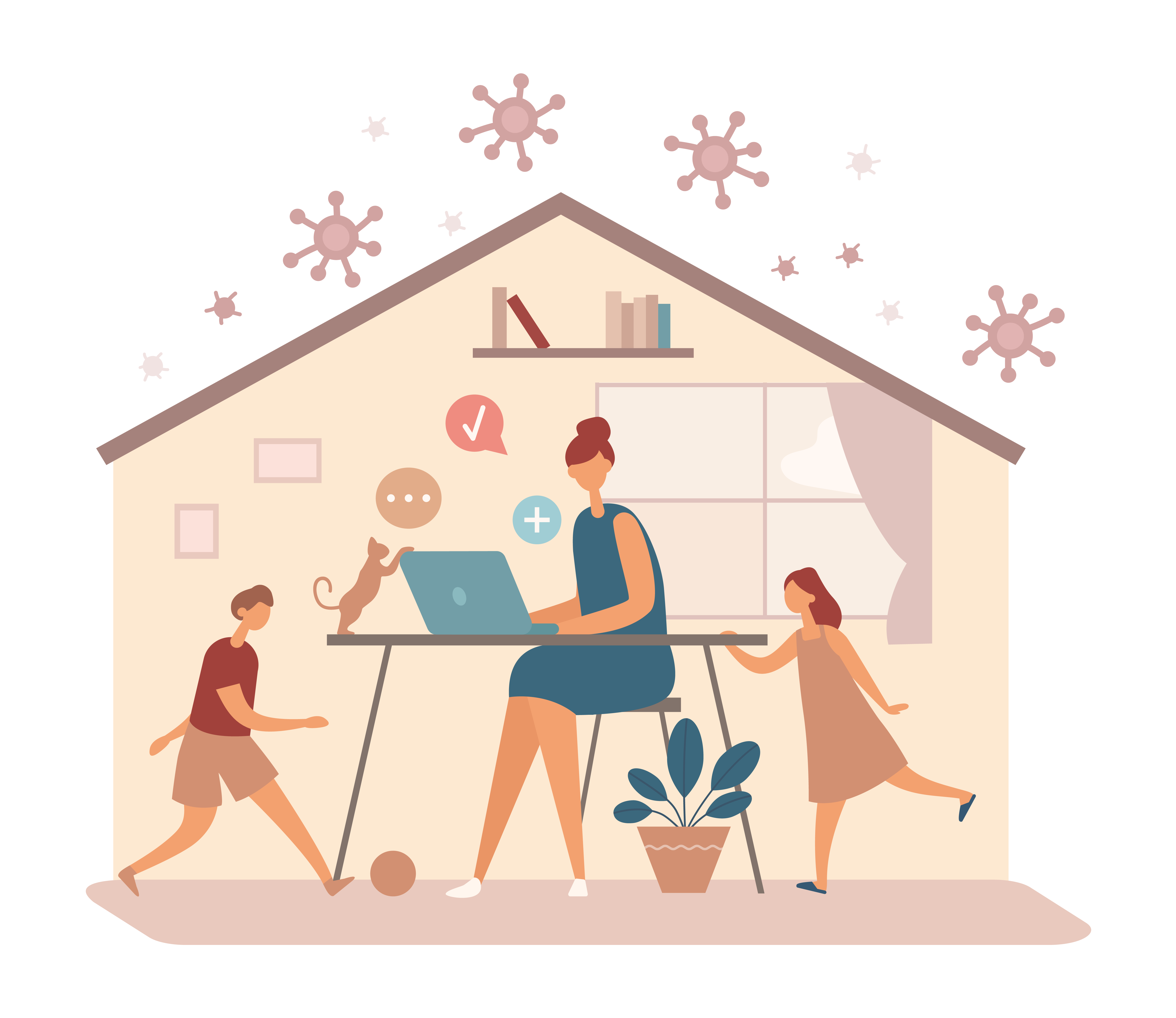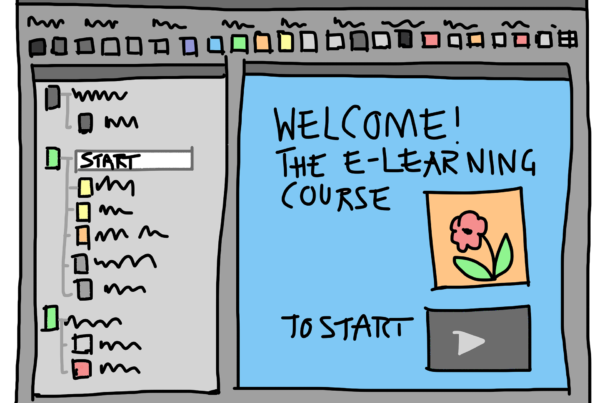

The continuous spread of the COVID-19 pandemic, the looming threat for the coming years and the never-ending quarantine guidelines in most countries have drastically changed our way of life. In light of our strongly connected and integrated world, it is unquestionable that the impact of this disease will have its toll on the world’s economy. A disruption in the functioning of global supply chains, a crash in the stock market and the closing of businesses have just been few of the reported consequences (McKibbin & Fernando, 2020). Many have already predicted the development of a ‘new normal’ (Dowd, 2020), the rise of the virtual world and an improved and empathic understanding of nature and our mortality. Unlike other human conflicts or climate catastrophes that are geographically contained, this virus has reminded all humans, at once, about our weaknesses and our strengths. It has brought us together, particularly through the stress of remote work, homeschooling, dependent care, self-reliance and the looming threat of getting oneself or others ill. It is this stress that tests a new frontier of brain capacity and performance while engineering a novel platform for optimal brain performance.
Amidst the shutdown of usual day-to-day functioning and the switch to remote work, researchers worldwide are now seeking to understand and evaluate the impact of psychological stress on remote work during the COVID-19 crisis. As psychology students and professors, we all have theories and conjectures about the potential psychological consequences of this pandemic, however, they have yet to be established quantitatively, especially on stress levels of humans. Dr. Adamson and her research team at Stanford Medical School are one of the first to have created a global survey to study psychological stress on remote work during the COVID-19 crisis (https://abslab.stanford.edu.). This is a unique research project that aims to gather responses on a well-known standardized scale (Cohen, Kamarck, & Mermelstein, 1983) and characterize these responses according to age, gender, and geographical location, number of dependents, remote work capabilities, home schooling and dependent care. Another aspect of this survey is to assess the various types of activities that may reduce this level of stress such as meditation, exercise, sleep and virtual time spent with loved ones. The goal is to capture the current patterns of stress in our world in a standardized fashion that will help us identify targets in need of most attention in the post-COVID-19 world. We invite you to participate in this 8-10 minute survey. You must be 18 years of age or older to take this survey: https://abslab.stanford.edu/ (Please note: you can only do this survey once. Please click on the top right corner to choose your native language).
Having taken the survey, you might now be wondering how to cope with the stress you may be experiencing. As has, likewise, been suggested by Galea, Merchant, and Lurie (2020), virtual time spent with loved ones can help reduce the stress you’re experiencing. As opposed to texting your family and friends, you could try calling or face-timing them as it is believed to be superior in reducing your levels of stress: It makes the interaction more personal and further allows for your non-verbal cues to become more salient to the other person. Additionally, it is advised to implement a routine with scheduled exercise sessions. Repeatedly, it has been shown that physical exercise helps alleviate various mental health problems, including experiencing high levels of stress (Gerber & Pühse, 2009; Wipfli et al., 2011). Due to the pandemic, various gyms are now closed. However, most have started to provide online sessions. People who are experiencing high levels of stress are therefore encouraged to take advantage of these alternative offers. Lastly, we recommend trying meditation and yoga to reduce the stress you may be experiencing since research has shown that it is, indeed, associated with reduced levels of cortisol (Pascoe, 2017).
As we move forward, we should strive for a supportive community that is sympathetic towards others and adheres to the guidelines that aim at containing the further spread of the virus. The World Health Organization (2020) has announced several measures that everyone can take, in their efforts to contribute: Wash your hands frequently, maintain a safe distance from those around you, cover your nose and mouth and stay home if possible. Together, we can make a difference.
Ines Luttenbacher, Srija Seenivasan, Angela Phillips, PhD, Julian Martinez, Xiaojian Kang, PhD & Maheen M. Adamson, PhD
Image from Adobe Creative Cloud.

The continuous spread of the COVID-19 pandemic, the looming threat for the coming years and the never-ending quarantine guidelines in most countries have drastically changed our way of life. In light of our strongly connected and integrated world, it is unquestionable that the impact of this disease will have its toll on the world’s economy. A disruption in the functioning of global supply chains, a crash in the stock market and the closing of businesses have just been few of the reported consequences (McKibbin & Fernando, 2020). Many have already predicted the development of a ‘new normal’ (Dowd, 2020), the rise of the virtual world and an improved and empathic understanding of nature and our mortality. Unlike other human conflicts or climate catastrophes that are geographically contained, this virus has reminded all humans, at once, about our weaknesses and our strengths. It has brought us together, particularly through the stress of remote work, homeschooling, dependent care, self-reliance and the looming threat of getting oneself or others ill. It is this stress that tests a new frontier of brain capacity and performance while engineering a novel platform for optimal brain performance.
Amidst the shutdown of usual day-to-day functioning and the switch to remote work, researchers worldwide are now seeking to understand and evaluate the impact of psychological stress on remote work during the COVID-19 crisis. As psychology students and professors, we all have theories and conjectures about the potential psychological consequences of this pandemic, however, they have yet to be established quantitatively, especially on stress levels of humans. Dr. Adamson and her research team at Stanford Medical School are one of the first to have created a global survey to study psychological stress on remote work during the COVID-19 crisis (https://abslab.stanford.edu.). This is a unique research project that aims to gather responses on a well-known standardized scale (Cohen, Kamarck, & Mermelstein, 1983) and characterize these responses according to age, gender, and geographical location, number of dependents, remote work capabilities, home schooling and dependent care. Another aspect of this survey is to assess the various types of activities that may reduce this level of stress such as meditation, exercise, sleep and virtual time spent with loved ones. The goal is to capture the current patterns of stress in our world in a standardized fashion that will help us identify targets in need of most attention in the post-COVID-19 world. We invite you to participate in this 8-10 minute survey. You must be 18 years of age or older to take this survey: https://abslab.stanford.edu/ (Please note: you can only do this survey once. Please click on the top right corner to choose your native language).
Having taken the survey, you might now be wondering how to cope with the stress you may be experiencing. As has, likewise, been suggested by Galea, Merchant, and Lurie (2020), virtual time spent with loved ones can help reduce the stress you’re experiencing. As opposed to texting your family and friends, you could try calling or face-timing them as it is believed to be superior in reducing your levels of stress: It makes the interaction more personal and further allows for your non-verbal cues to become more salient to the other person. Additionally, it is advised to implement a routine with scheduled exercise sessions. Repeatedly, it has been shown that physical exercise helps alleviate various mental health problems, including experiencing high levels of stress (Gerber & Pühse, 2009; Wipfli et al., 2011). Due to the pandemic, various gyms are now closed. However, most have started to provide online sessions. People who are experiencing high levels of stress are therefore encouraged to take advantage of these alternative offers. Lastly, we recommend trying meditation and yoga to reduce the stress you may be experiencing since research has shown that it is, indeed, associated with reduced levels of cortisol (Pascoe, 2017).
As we move forward, we should strive for a supportive community that is sympathetic towards others and adheres to the guidelines that aim at containing the further spread of the virus. The World Health Organization (2020) has announced several measures that everyone can take, in their efforts to contribute: Wash your hands frequently, maintain a safe distance from those around you, cover your nose and mouth and stay home if possible. Together, we can make a difference.
Ines Luttenbacher, Srija Seenivasan, Angela Phillips, PhD, Julian Martinez, Xiaojian Kang, PhD & Maheen M. Adamson, PhD
Image from Adobe Creative Cloud.



